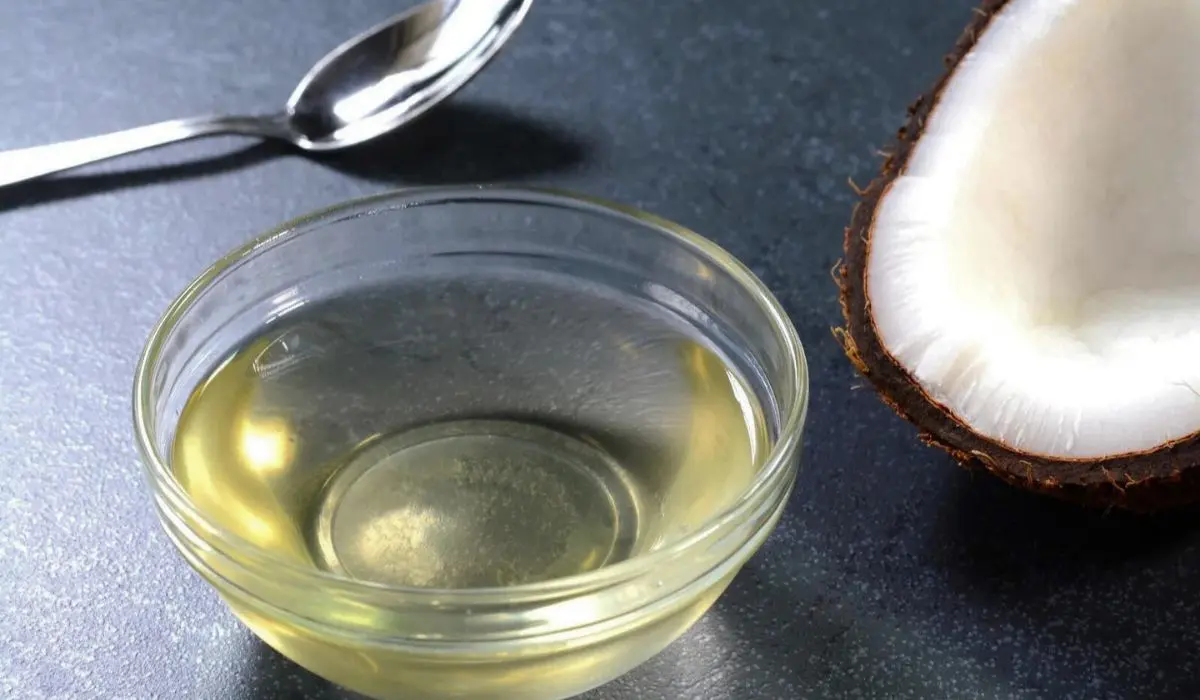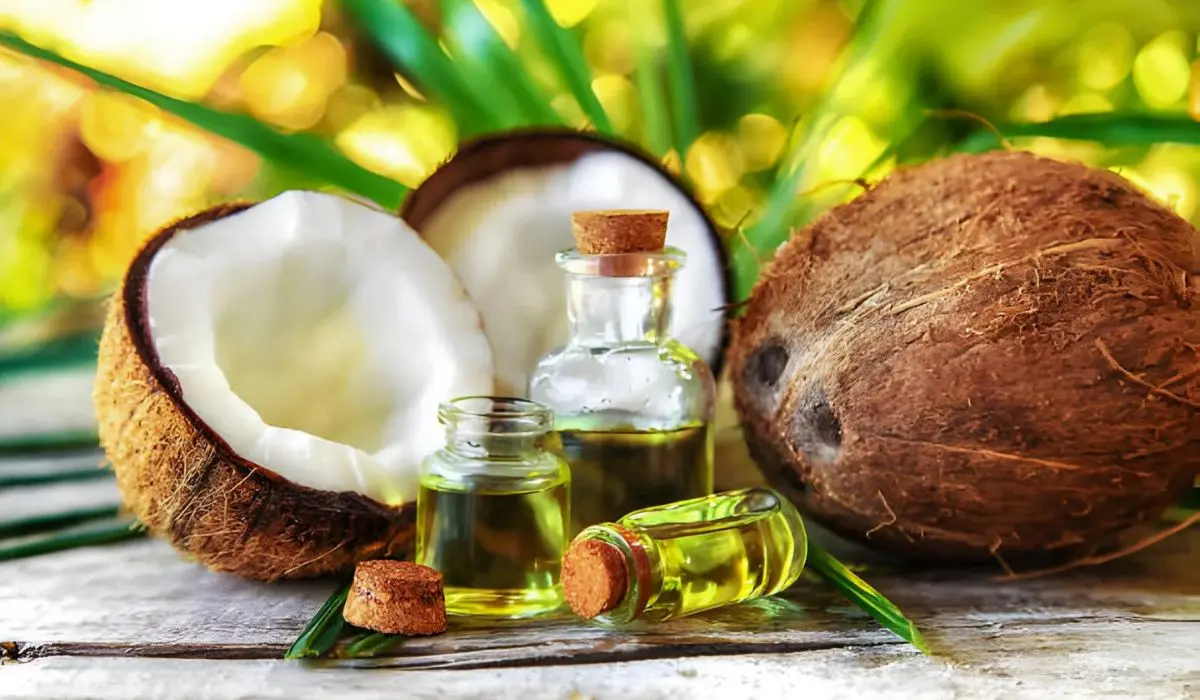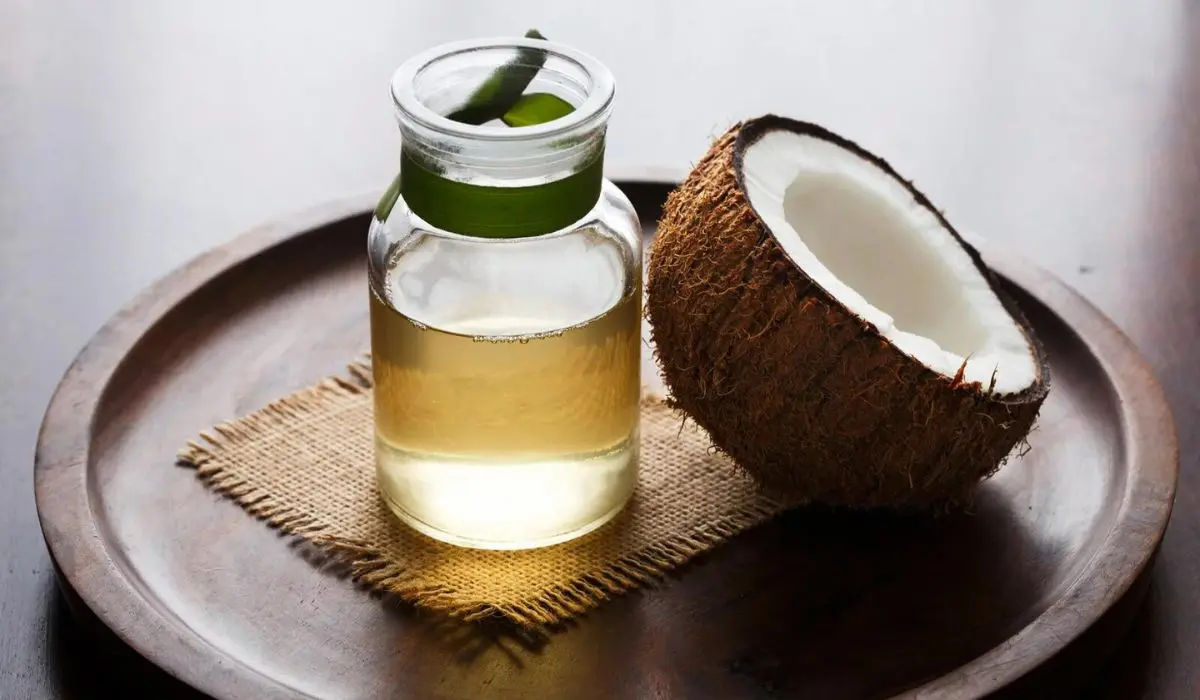Coconut oil has become a beloved staple in homes across the world, thanks to its incredible versatility. From cooking up delicious meals to pampering your skin and hair, this multipurpose oil seems to do it all. But as with any food product, the question arises: does coconut oil go bad?
If you’ve ever found an old jar tucked away in the back of your pantry, you may have wondered if it’s still safe to use. After all, no one wants to risk ingesting spoiled food or slathering rancid oil all over their body.
In this comprehensive guide, we’ll dive deep into the shelf life of coconut oil, exploring how long it lasts, the signs of spoilage, and the best ways to store it for maximum freshness. Get ready to become a coconut oil expert!
What Is Coconut Oil?
Before we tackle the question of “Does coconut oil expire,” let’s first understand what this magical substance is. Coconut oil is a plant-based oil extracted from the meat of mature coconuts. It’s available in two main forms: unrefined (also known as virgin coconut oil) and refined.
Unrefined coconut oil is made by pressing fresh coconut meat, retaining its natural aroma and flavor. It undergoes minimal processing, making it a favorite among health-conscious individuals.
On the other hand, refined coconut oil is made from dried coconut meat (known as copra) and goes through additional processing steps such as deodorization and bleaching. This results in a neutral taste and aroma.

Does Coconut Oil Go Bad? Things To Know!
The short answer is yes, coconut oil can definitely go bad. Like most natural oils and food products, it has a finite shelf life and won’t stay fresh forever. However, the good news is that coconut oil maintains its quality for much longer than many other cooking oils and ingredients you might have in your kitchen.
While it may seem rather shelf-stable thanks to its solid or semi-solid texture at room temperature, coconut oil is still susceptible to oxidation, rancidity, and contamination over time. Failing to store it properly or using really old coconut oil can lead to off-flavors, odors, discoloration, and even potential health risks.
So while coconut oil doesn’t necessarily “go bad” in the sense of growing mold or becoming inedible right away, its beneficial properties and pleasant taste will degrade significantly past its prime. Using rancid coconut oil can ruin recipes and make your food taste stale, musty, or sour. Not ideal!
How Long Does Coconut Oil Last?
Now that we’ve established coconut oil does indeed go bad eventually, you’re probably wondering just how long it will stay fresh and delicious. The shelf life can vary, but in general:
Unrefined (virgin) coconut oil has an impressive shelf life of 2-3 years when stored properly in a cool, dark place.
Refined coconut oil doesn’t last quite as long, with a typical shelf life of around 18-24 months.
However, it’s important to note that these are rough estimates. Coconut oil’s shelf life can be shorter if it’s exposed to heat, light, moisture, or contamination from dirty utensils. Conversely, if stored in the refrigerator or freezer, both varieties may last even longer than the general guidelines.
Why Does Coconut Oil Go Bad?
Like other oils and foods with a high fat content, coconut oil can go rancid due to oxidation over time. Oxidation occurs when the fatty acids in the oil are exposed to oxygen and start to break down into free radicals and other compounds.
This process causes unpleasant odors and flavors, as well as discoloration and degradation of the oil’s quality. Several key factors can contribute to and accelerate oxidation in coconut oil:
🥥 Air Exposure
Keeping coconut oil tightly sealed helps minimize contact with oxygen that causes oxidation.
🥥 Light Exposure
Direct light, especially sunlight, can speed up the oxidation process considerably.
🥥 Heat
Storing coconut oil at high temperatures, even at just room temperature in very warm climates, can destabilize the fatty acids ( as mentioned in NIH).
🥥 Moisture
Any water introduced can support microbial growth and contamination that leads to spoilage.
🥥 Age
Over an extended period, oxidation is virtually inevitable for coconut oil and most foods with fats and oils.
While oxidation is the primary mechanism behind coconut oil going rancid, contamination from bacteria (according to NIH), yeast and mold can also cause spoilage and off-flavors or odors. Proper storage and handling is crucial.
Also Check:- Red Raspberry Leaf Tea: Benefits And Recipe Of The Pregnancy Tea!
How To Tell If Coconut Oil Has Gone Bad? Signs Of Spoilage
Even with the best storage practices, coconut oil can eventually go bad. But how can you tell if it’s time to toss that jar or bottle? Here are the signs to look out for:
🥥 Smell
Fresh coconut oil should have a mild, pleasant coconut aroma. If it smells rancid, sour, or musty, it’s likely spoiled.
🥥 Appearance
Good coconut oil should be a creamy white or pale yellow color. If it has turned dark, developed a cloudy appearance, or has visible mold or particles floating in it, it’s time to discard it.
🥥 Texture
Depending on the temperature, coconut oil can be either solid or liquid. However, if it has a grainy or curdled texture, it has likely gone bad.
🥥 Taste
Take a small taste of the coconut oil. If it has a sour, bitter, or otherwise unpleasant flavor, it’s no longer safe to consume.
If you notice any of these signs, it’s best to err on the side of caution and throw the coconut oil away.

Storing Coconut Oil For Maximum Freshness
To make sure your coconut oil stays fresh for as long as possible, follow these simple storage tips:
🥥 Keep It Sealed
Ensure the lid or cap is tightly closed after each use to prevent air and moisture from getting in.
🥥 Store In A Cool, Dark Place
Avoid exposing the oil to direct sunlight or heat sources, as these can accelerate oxidation ( according to NIH).
🥥 Refrigerate For Longer Shelf Life
While not necessary, refrigerating coconut oil can extend its shelf life even further.
🥥 Use Clean Utensils
Always use a clean, dry spoon or utensil when scooping out the oil to avoid introducing contaminants.
🥥 Buy In Smaller Quantities
Purchase smaller jars or bottles to ensure you use up the coconut oil before it goes bad.
By following these simple tips, you can enjoy the benefits of fresh, high-quality coconut oil for months or even years to come.
Also Read:- Chamomile & Lavender Tea Benefits: Exploring The Nutritious Effects!
Conclusion
In summary, the query “Does coconut oil go bad”, it definitely gets worse over time. Don’t let its solid texture fool you – this powerhouse natural oil has a finite shelf life. The good news is that when stored correctly in a cool, dry, dark place, coconut oil can maintain its quality for an impressively long time.
Virgin, unrefined coconut oil will last the longest at around 2-3 years, while refined varieties tend to stay fresh for 18-24 months. No matter which type you use, be sure to keep coconut oil tightly sealed, away from heat and light sources, and use clean, dry utensils to prevent contamination and premature spoilage.
By taking some simple precautions and knowing the telltale signs of rancid coconut oil, you can keep this versatile kitchen and beauty staple fresh and flavorful. With its long shelf life when stored properly, there’s no need to be afraid of stocking up on coconut oil. Just be sure to use up any open jars or bottles within their general shelf life for maximum quality, flavor, and nutrition







